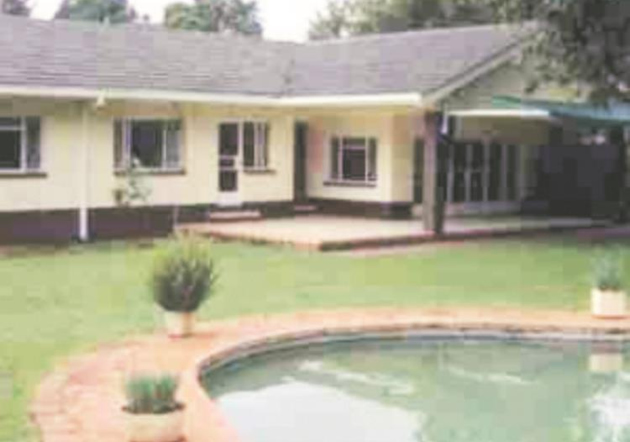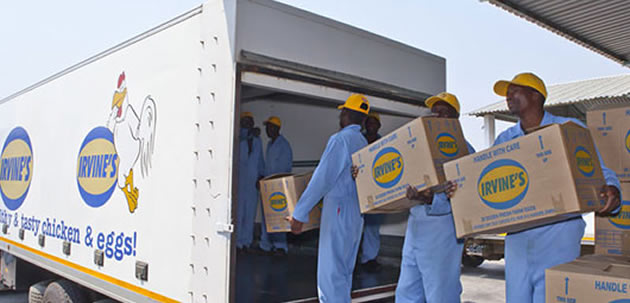Homelink needs a paradigm shift


People will always build homes in their ancestral or original home areas as there is always a feeling that when conditions in the country of origin become more favourable to them, they will always return or they always need somewhere to stay for their descendants
Nick Mangwana View From the Diaspora
The notion of a “home” for a Diasporan has always been both elusive and illusionary. Is home the place of ancestral origin or home is the place where one earns a living? Is it that place where one stays or feels settled? Is home even the place of one’s ancestral burial? Is it the place where one has a house? Some say home is a place where your feet may leave, but never your heart. The great Maya Angelou said that “home is a place we can go and not be questioned”.
There is a clan whose patriarch is known to have come from South African in the Limpopo Province and settled in Zimbabwe over 100 years ago.
They still consider themselves Northern Sothos even though the last three generations of them cannot even speak a word in that language.
The only thing that remains that indicates their Nguni heritage is the totem title (chidawo) known as Mthombeni.
So where is their home? Is it in South Africa or is it in the land of their adoption which in this case is Zimbabwe?
There is never the right or wrong answer to this question. People like Simon Chimbetu left the country to take up arms and try to liberate the country when their father was from Tanzania.
They died heroes and were buried at the provincial heroes acre in Chinhoyi as an illustrious and gallant son of Zimbabwe who fought for his home.
So where is the home of a Diasporan? This is the question which will be discussed in next week’s piece but for this week this column will deal with a different type of “home”. This is the issue of “Homelink.”
A few years ago, the Reserve Bank of Zimbabwe started a company with a focus of linking up Zimbabwe and its Diaspora. They aptly named it Homelink. This was a company that had been founded specifically with the Diaspora in mind. Unlike most other initiatives which were mainly one sided, this was meant to provide a nexus between both parties and be mutually beneficial.
It was an initiative that attempted to answer the question of where the Diasporan home is (albeit with disastrous reputational consequences). In coming up with this company it seems that there had been a conclusion that the home of a person that emigrated from Zimbabwe to another country remains Zimbabwe. Maybe they were right, if the recent xenophobic incidents in a neighbouring country are anything to go by.
Maybe the home of everyone who left Zimbabwe remains Zimbabwe. But one can also contend that the best definition is that home is not a geographical place. Home is a state of consciousness and therefore where one’s home is only defined by their state of mind. It means that the notion of home is not only a social but emotional and economic construction.
It was with this in mind that recognition was made that those in the Diaspora even if they have houses where they live, they still need houses in their countries of origin.
It is 10 years after this endeavour and the company called Homelink is still reeling from the reputational risk they took. They have come back on the market and are still attempting to lure the same group of Zimbabweans outside Zimbabwe to invest in the country and build houses for themselves.
They have even put up packages with interest rates that are more favourable to the Diasporan than those based in Zimbabwe. In their current products the Diaspora is afforded interest rates of 10 percent and Zimbabweans based at home are afforded an interest rate of 14 percent. The Diasporan remains cynical.
They scream once bitten twice shy. But bitten by whom? The question is, by Homelink or by fellow Dias- porans?
In all situations of disputes there are always two sides to a story and the truth lies somewhere in between.
For this noble idea that is Homelink to prosper, there has to be a lot of reputational redemption. What with the unscrupulous actions of some of their agencies in 2006!
Homelink owners are rightly paying a price for the actions of their agencies. That would ordinarily sound fair as the principal should always be held accountable for the actions of the agent. To this end, they have tried their best and until now they maintain that whoever lost their moneys and can prove it should forward their claim and they are happy to honour it. This is a good challenge. There are not many companies out there that can lay such a gauntlet.
As Shakespeare said: “Let every eye negotiate for itself and trust no agent.” Thus the idea of using a few unknown quantities as agencies is the issue that led to this calamitous result.
The idea that people can just come from Harare and appoint anyone that shows a bit of enthusiasm as an agent was not only ill-advised but very much ill-fated. As would be expected, all sorts of people went into the Diaspora: the good, the bad and the ugly; the reputable, the conscionable and downright criminals.
The only way Homelink or any other company could have avoided the folly of yesteryear is to do what they have decided to do now.
Firstly, to either use credit agencies to perform due diligence for them before appointing any agent or not to appoint agencies at all.
If using agencies, only people with good records should be used as agencies.
The second alternative was to use sureties or guarantees from the agencies so as to mitigate any potential losses not only to Homelink itself but to the consumer.
People work too hard so far away from home to lose their earnings to some unscrupulous rogue elements.
But the best solution remains their current strategy, to employ their own people who are fully accountable to them.
Another point worth noting is their current avoidance of short-cuts. There is also no substitute for regulation.
This time around they have decided to engage with regulators such as the Financial Conduct Authorities (FCA). The mere use of that label means that the discerning consumer is reassured that they will recover their money no matter what.
Maybe this time around the Diasporan hoping to have a place they call their own in Zimbabwe will realise that dream.
The Diaspora bond, when launched, is meant to be a high yielding financial product.
As they prepare to launch it, they can only make a good success of it if they subject themselves to that extra regulation and the insurance that is provided to the consumer by the FCA.
Whilst the registration fee outlay would seem a bit steep in these days of tough liquidity in the country, it is worth it. It also worth it for the consumer as it is also convertible into a deposit for that well sought after home.
But why do people in the Diaspora the world over always build a home in their motherlands?
People will always build homes in their ancestral or their original homes as there is always a feeling that when conditions in the country of origin become more favourable to them, they will always return or they always need somewhere for their descendants.
The Diasporan is always wishing their original home to prosper therefore they want their ideas and a place of their own for that good day. A place of one’s own takes away the feeling of a wondering wanderer.
Whether one likes it or not there will always be an ethnocommunal consciousness which will be more awakened when there is real estate.
This real estate converts a Diaspora visitor into a Diaspora investor.
The solidarity between the aspirations of those in the Diaspora and those at home for the better outcome of their country is the one thing that makes Diasporans want their country to prosper.
Maybe this time the RBZ through Homelink is on to something which will make a difference for the Diasporan. There is only one major condition for that to happen – let Homelink slough off undeserved perceptions by not taking shortcuts.
A good uptake of their products can only bring a desperately needed positive vibe to the economy.
It is time to start trusting national institutions. But only when they avoid short-cuts and play by the rules that govern financial services products.
These are the same rules that will make the Diaspora take up the bond. If one finds themselves taking short-cuts in the financial products journey, then probably that place is not worth going to as there are no short-cuts to a real good destination.
If Homelink takes other short-cuts as was done in the past, they will still end up with a pile of mess from which they will never recover.
Zimbabweans wherever they are located want a home in Zimbabwe. They want to work with straightforward companies with prudent ethical prac- tices.
There are too many cowboys out there so a State company that subjects itself to proper regulation should not struggle to get takers. In that regard Homelink have restarted well.
They have now to narrow the gap between their character and their reputation as currently there is confusion over which is which. They have a reputation their character doesn’t deserve.









Comments